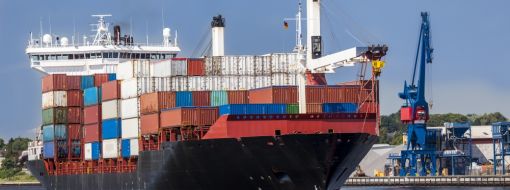

On 3 November, the EU-Japan Centre with the support of Enterprise Europe Network partner organisations in the EU, members of the Sector Group Maritime Industries & Services, organised an online workshop dedicated to EU companies seeking to understand the various segments of the maritime transport industry in Japan, as well as the impact of the EU-Japan Economic Partnership Agreement in this sector.
The attendees, local companies mostly from Germany, France and Denmark, accompanied by Enterprise Europe Network, had the chance to learn more about the topic and to ask questions to the experts
Mr Max Berre, Economist and Journalist with years of Japan-related experience and Ms Chieko Nakabayashi, Professor, Researcher and Consultant on Business Development, based in Brussels and Tokyo.
The EU and Japan's Economic Partnership Agreement (EPA) entered into force on 1 February 2019 offering European companies to benefit from removed tariffs and simplified customs procedures. It positively affected trade flows on the Asia-Europe route.
In Japan, Top 3 Maritime Ports in trade volumes are Nagoya, (11%) Tokyo (11%) and Yokohama (7.6%). Demand for direct routes from/to Europe reaches 38.8%. Japanese shipping companies operate mergers and acquisitions, separate operations from ownership to lighten assets, using Non-Vessel Operating Carrier and strengthen alliances to increase cost and geographical efficiency.
Production shifted to regional supply chain model creating new business opportunities as total logistic solutions to capture all customers' value chains, including local overland transport and storage and up to distribution and sales).
Under the Treaty, Japan and the EU respect the principle of unrestricted access to international maritime markets and trades on a commercial and non -discriminatory basis.
Ships flying either Japanese or EU-member-nation flags or operated by Japanese or EU service suppliers receive equal treatment with: - Access to ports - Use of infrastructure and services of ports - Use of maritime auxiliary services - Related fees and charges - Customs facilities - Assignment of berths and facilities for loading and unloading.
For more information on the topic, please go to the EU-Japan Center's website with available presentations delivered during the webinar.
Discover the Maritime Newsletter of Enterprise Europe Network
Find out more about Enterprise Europe Network services to SMEs
The EU-Japan Centre currently produces 5 newsletters :










Joint venture established in 1987 by the European Commission (DG GROW) and the Japanese Government (METI) for promoting all forms of industrial, trade and investment cooperation between the EU and Japan.
The EU-Japan Centre’s activities are subject to the allocation of a Grant Agreement by the European Commission for 2024-2026

